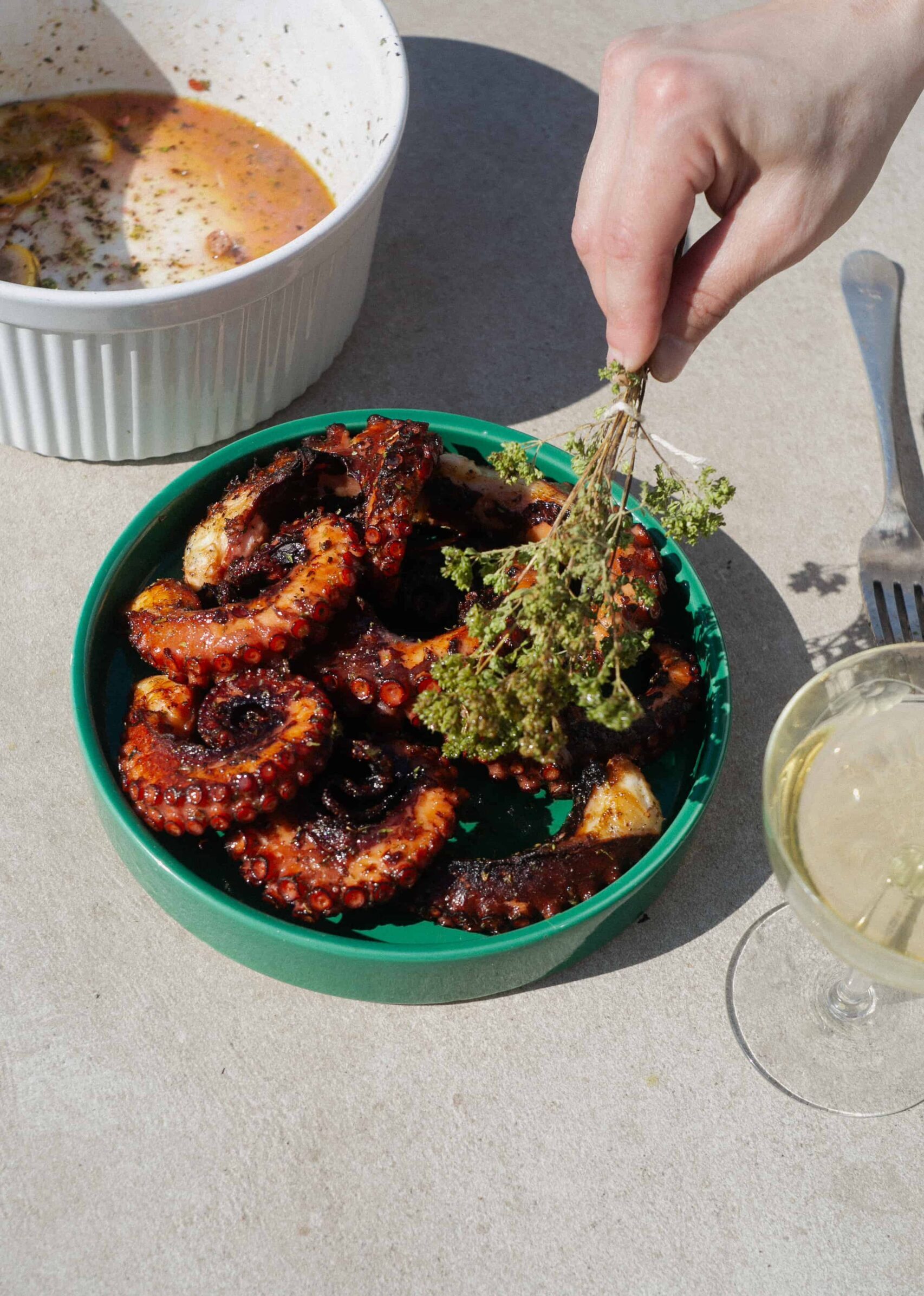When researching how our ancestors ate, the recipe is rarely the most exciting part. After all, how accurate can the reproduction of a 25-century-old dish ever be? Instead, the most fascinating details one can elicit from ancient cooking are the ingredients and traditions.
Oregano, vinegar, olive oil, and the distinctive taste of woodfire have been part of our collective palate since antiquity. Such flavors are still very present today in Greece’s traditional food. Grilled octopus, for instance, is one of the most emblematic dishes of the Great Lent – the 40 days of fasting leading to the Orthodox Easter – whose wholesome menu transcends religious beliefs. Independently of faith, the menu of Sarakostì is very loved among Greeks. Seafood is traditionally consumed only on specific days (but nowadays, restaurants serve it for the entire lent); Wine and olive oil are only allowed on weekends. Spring vegetables and legumes are omnipresent. Meat and milk products are entirely omitted. The code of the Great Lent is temperance, but in their simplicity, its foods are so delicious.
In our recipe, adapted from a dish attributed to the Attic comedian Antiphanes, the secret stands at the time of marination: Let your octopus marinate for 3 to 8 hours, turning it around now and then so that the liquids penetrate all sides. The more you allow for marinating, the better. If barbecue is not an option, a grill pan will do. Octopus is salty; use very little or no salt.


